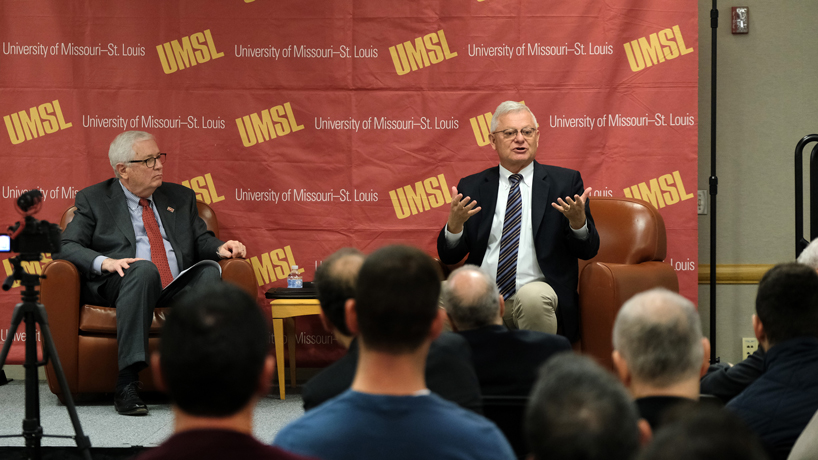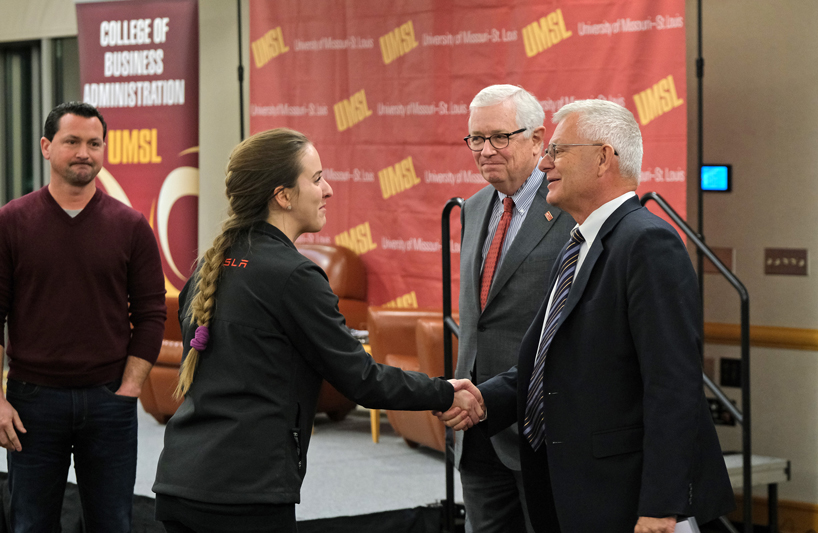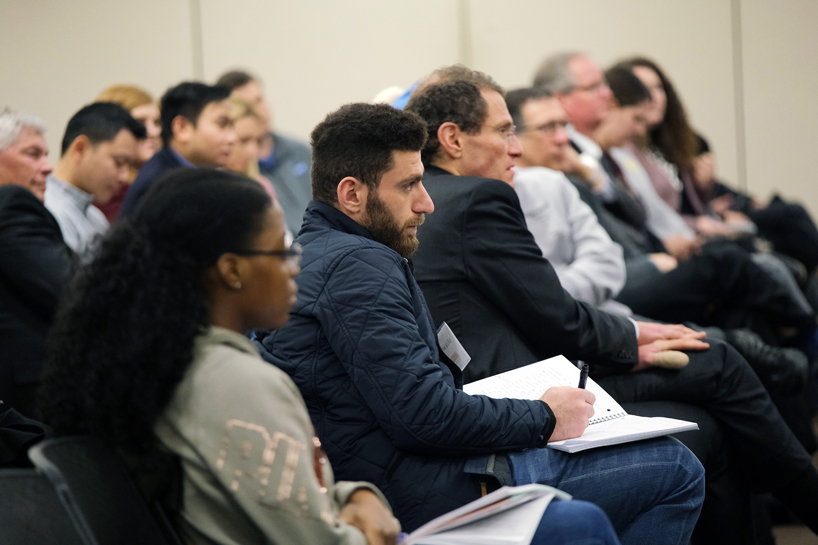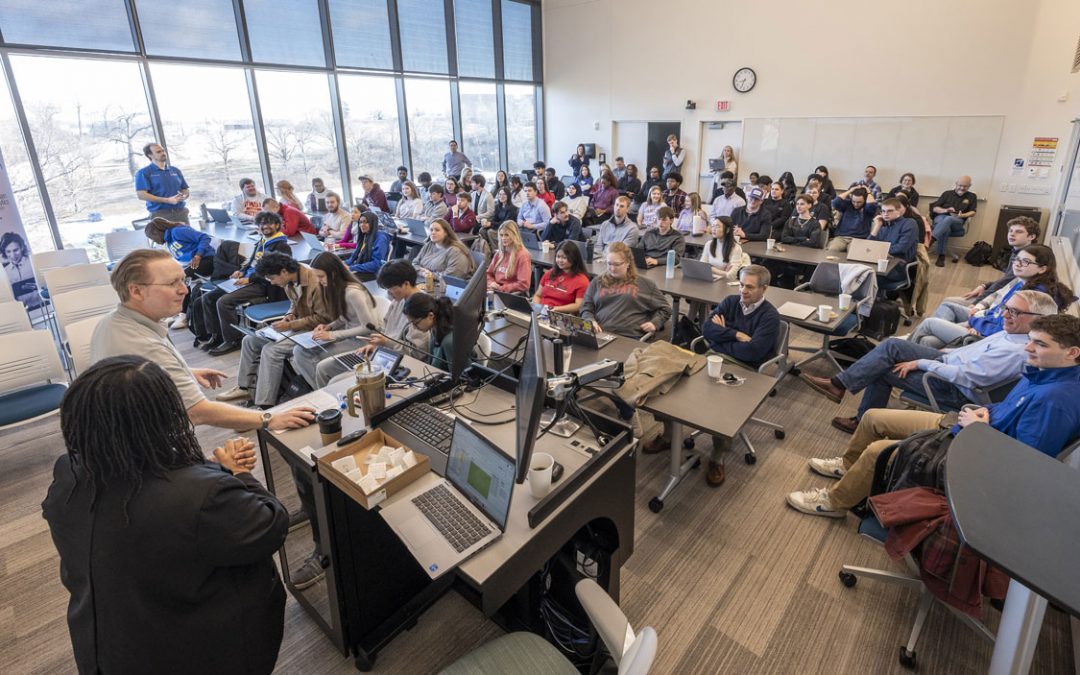
Edward Monser (right), who retired as president of Emerson in October, joined College of Business Administration Dean Charlie Hoffman (left) for the CEO Speaker Series Wednesday in the Century Rooms of the Millennium Student Center. (Photos by August Jennewein)
Of the many mentors Edward Monser encountered in his 37 years with Emerson, he had one more impactful than the rest: his father.
Starting as a young businessman, Monser received parental advice on the value of paying attention to individual work as well as company priorities. This outlook motivated Monser to consistently investigate investment areas of the companies he worked for and seek out ways that he could participate in those functions.
He eventually found himself not just participating in priority departments but leading them as president of Emerson.

Edward Monser and Charlie Hoffman greeted UMSL students, faculty and staff following the Q&A presentation focused on Monser’s career at Emerson.
“Try to understand what’s important to the company you’re working with, and try to find a way to align yourself with what the company thinks is important,” Monser said to University of Missouri–St. Louis students Wednesday during the annual CEO Speaker Series in the Millennium Student Center. “The reason why this is a good thing to think about is you want to work on high-priority work. The problem with working on medium priority or lower priority is you can do a really good job and not get rewarded. If you work hard and are not getting a reward, why are you doing it?”
Much of Monser’s hour-long talk, which was moderated by College of Business Administration Dean Charlie Hoffman, focused on lessons he acquired on his path to company leadership roles before retiring in October. He related those anecdotes to how young professionals could find success in current business structures – at one point advising those preparing for job interviews that “this is the part where you might want to pay attention.”
He then began sharing a story from his days as president of Rosemount, a division of Emerson, when he was advocating for additional leadership positions. Monser approached a human resource representative about the idea, who then asked for a definition of leadership. Monser provided a “back-of-a-cereal-box answer,” and the HR head instructed him to return when he had a more solid definition.

A crowd of mostly UMSL business students and faculty members listened in on Monser’s CEO Speaker Series address Wednesday. The annual event is hosted by the College of Business Administration.
The division president went on to pull 80 definitions of leadership and charted out the similarities and differences in those descriptions. He eventually uncovered four attributes that appeared in nearly every definition: honesty, forward-looking, inspiring and competent.
While he believes all of these qualities are important, he found honesty tends to have to the most value.
“From my Emerson experience, I learned to look for these attributes and where people were in their spectrum of development,” Monser said. “The biggest variation that you would find was in honesty. The thing that would determine if somebody got promoted or not most often was who was the most candid, who was the most open, who did other people react positively to because they were trustworthy.”
He advised students and young professionals to work on these qualities while also staying sharp on technical skills.
“The skills needed for the job constantly change, so you need a constant, lifelong investment in yourself directed by yourself,” Monser said. “It could be by interest or by where you think there’s going to be opportunity.”
Among his final thoughts, Monser advised students that by pursuing an education at UMSL, they are making a wise investment. He’s found that UMSL graduates often have strong technical competencies paired with an eagerness and ability to learn new skills.
“The role of UMSL is absolutely vital,” Monser said. “The role of UMSL is to take a person that made one choice and wants to make another choice to improve themselves and move ahead. They have an environment that allows that to happen. You don’t have to be privileged to get that opportunity. You have to have the willingness to go fight for it. Here is a place you can come and get that done.”














